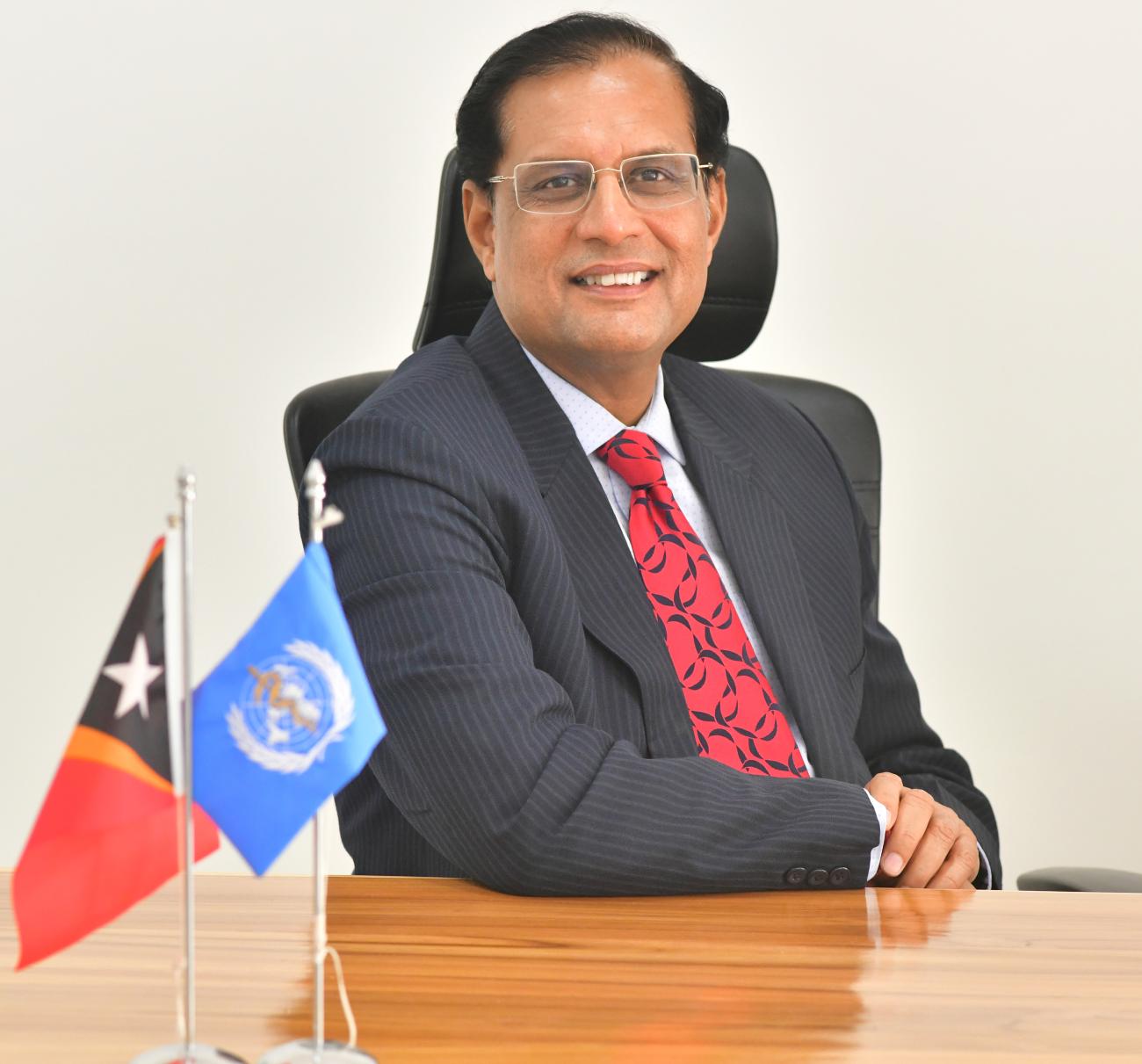Investing in mother and child health in favor of Timor-Leste’s bright future

OP-ED By WHO Representative Dr Arvind Mathur for National Health Day on July 22, 2022.
HED: Investing in mother and child health in favor of Timor-Leste’s bright future
For every 100,000 live births in Timor-Leste, an estimated 195 women die due to complications of pregnancy or childbirth. The country’s Neonatal Mortality Rate (NMR) which looks at children who died during the first 28 days of life stands at 22 per 1000 live births and its Under Five Mortality Rate stands at 41 per 1000 live births. These estimates were drawn in 2016, and even as we believe that the nation has made tremendous progress around maternal and child health since then, we cannot let our guards down. On this National Health Day, Timor-Leste has therefore rightly chosen the theme of ‘strengthening the essential package of primary healthcare for mother and child health’ to focus on reducing these preventable deaths.
Timor-Leste became one of the eight countries in the world to achieve the maternal health related Millennium Development Goals in 2015. It was around the same time that the government’s Reproductive, Maternal, Newborn, Child and Adolescents Health (RMNCAH) strategy was launched with a target to reduce MMR to 300 per 100,000 live births, NMR to 15 per 1000 live births and U-5 mortality rate to 40 per 1000 live births by 2019. But before the nation could gather data on its progress, the COVID-19 pandemic hit, and it further impacted the maternal and childcare services.
Traditionally, Timor-Leste has been grappling with two core challenges in maternal and child health – low institutional delivery rate and poor antenatal care follow ups. Nearly half of the childbirths are taking place in homes. Home births pose a substantial risk to the mother and the child due to lack of access to skilled care in case of complications such as post-partum hemorrhage, eclampsia, sepsis among others. It has also been observed that one fourth of pregnant women do not receive the minimal four antenatal contacts during which an ultrasound can pick up health risks to the mother and the baby. The pandemic has further exacerbated these core challenges.
As the nation puts emphasis on interlinking the essential package for primary healthcare with maternal and childcare, it is important that stock of medication like Injection Oxytocin commonly used to control bleeding after childbirth, and other hypertensive drugs are available in all primary care set ups. The healthcare facilities should also follow stringent infection control protocol. Haha
The World Health Organization has provided necessary technical assistance for IEC materials for awareness but importantly in ensuring evidence guidelines, protocols, and tools for maternal, newborn and child health care are available. WHO continues to support capacity building for quality Essential and Emergency Obstetric and Newborn Care services. It has been supporting Timor-Leste in strengthening organized midwifery, which has played a key role in reducing maternal and neonatal deaths. One of the key approaches that WHO is supporting Ministry of Health is Maternal and Perinatal Death Surveillance and Response. Every maternal death is a tragedy but not learning from these deaths is a bigger tragedy. While WHO is committed to offering continuous support to the Ministry of Health, it is important for the country to learn from these tragic deaths, nail the problems or loopholes in the healthcare system that are leading to these deaths, and pull in all resources to prevent them. Timor-Leste’s Maternal and Perinatal Death Surveillance is an important step in this direction. This surveillance is conducted with the sheer motive of identifying the events that led to a maternal death without naming or shaming anyone within the healthcare system. The sole aim of this surveillance is to prevent similar scenarios to avoid maternal deaths in the future.
Over a third of all maternal and new-born deaths as well as stillbirths occur during labour and childbirth. Many of these deaths and complications can be prevented by ensuring provision of high-quality, essential care for every pregnant woman and every baby around the time of labour, childbirth and in the first 24 hours and week after birth. This provides a unique period along the continuum of care to prevent maternal and newborn deaths as well as intrapartum stillbirths. By strengthening and investing in this critical window, it is a triple return on investment.
Well planned strategies, and initiatives like these will go a long way in strengthening Timor-Leste’s mother and childcare services and will help the nation achieve the maternal health related SDGs by 2030.
ENDS.



